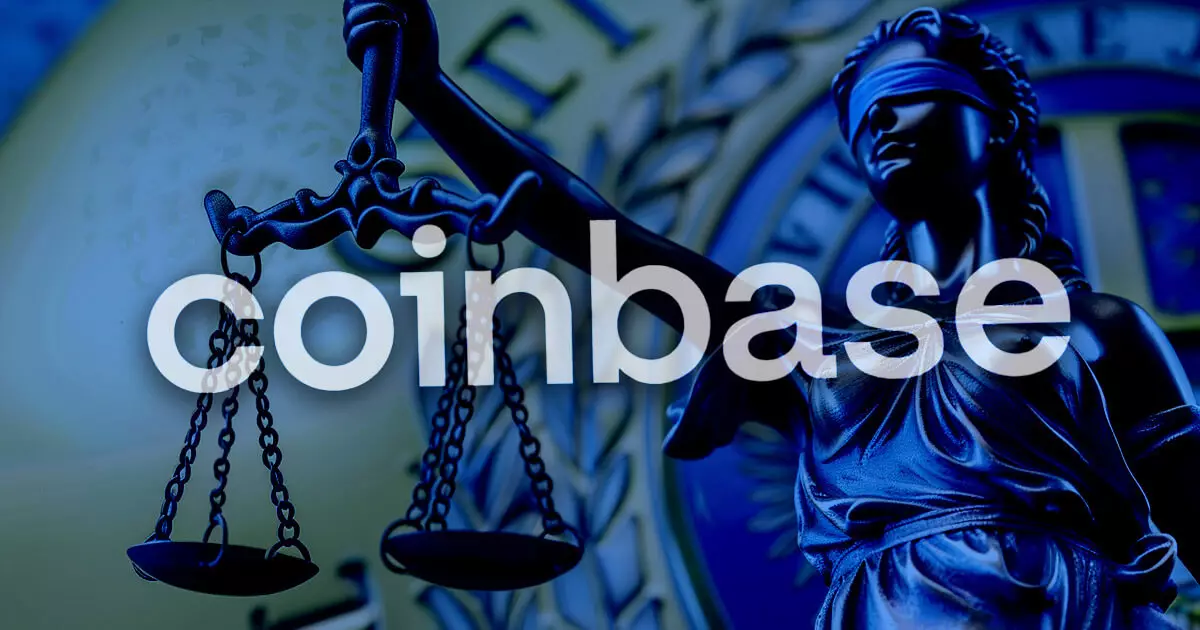The legal confrontation between Coinbase and the U.S. Securities and Exchange Commission (SEC) highlights the ongoing tension between cryptocurrencies and regulatory frameworks. Coinbase, a leading cryptocurrency exchange, has initiated a motion for partial summary judgment in pursuit of internal SEC documents that could potentially illuminate the agency’s enforcement strategies regarding digital assets. This lawsuit is emblematic of broader industry frustrations over regulatory opacity and the need for clearer guidelines governing cryptocurrencies.
The conflict originated when History Associates, hired by Coinbase, submitted a series of requests under the Freedom of Information Act (FOIA) to gain insights into the SEC’s regulatory stance on digital assets. The agency initially denied these requests by invoking FOIA Exemption 7(A), which protects certain records related to law enforcement proceedings. However, the SEC later admitted that the exemption might not apply, yet it still proposed a three-year delay in document review. This paradox raises questions about the SEC’s commitment to transparency and its justification for such extensions.
In response to the SEC’s extended timelines and lack of cooperation, Coinbase has suggested a dual-track strategy. This approach emphasizes the importance of prioritizing the review of internal communications within the SEC while postponing the examination of third-party records. Coinbase’s strategy seems geared towards expediting access to information that could clarify how the SEC interprets and applies securities laws to the fast-evolving cryptocurrency market. Given the ongoing ambiguity surrounding the classification of digital tokens as securities, such clarity is vital for market participants.
The implications of this lawsuit extend far beyond Coinbase. The SEC’s lack of clear guidelines on which cryptocurrencies are deemed securities has created an environment of uncertainty, not just for Coinbase but for all crypto companies. Furthermore, the timeline of requests illustrates the complexities surrounding regulatory scrutiny, particularly regarding Ethereum’s transition from a proof-of-work to a proof-of-stake mechanism. This shift marks a significant development in blockchain technology, and the regulatory implications remain largely unexplored.
The legal crux is compounded by the SEC’s past enforcement actions, such as the case against Zachary Coburn, the founder of EtherDelta, who was charged with operating an unregistered national securities exchange. The settlement, which involved nearly $400,000 in penalties and disgorgement, underscores the potential consequences for individuals and companies operating within the crypto space without regulatory oversight. This historical context provides a backdrop for Coinbase’s current legal challenges and signals the urgency for a cohesive regulatory framework.
Coinbase’s legal maneuvers against the SEC are more than just a fight for document access; they signify a broader struggle for fairness and clarity in the cryptocurrency industry. As the digital asset landscape continues to evolve, the necessity for coherent regulatory guidelines becomes increasingly apparent. Until these issues are addressed, companies operating in the cryptocurrency realm will remain vulnerable to regulatory inconsistencies and punitive actions, stifling innovation and growth. The outcome of this legal battle may well set a precedent for how federal regulators engage with the crypto industry moving forward.
















Leave a Reply